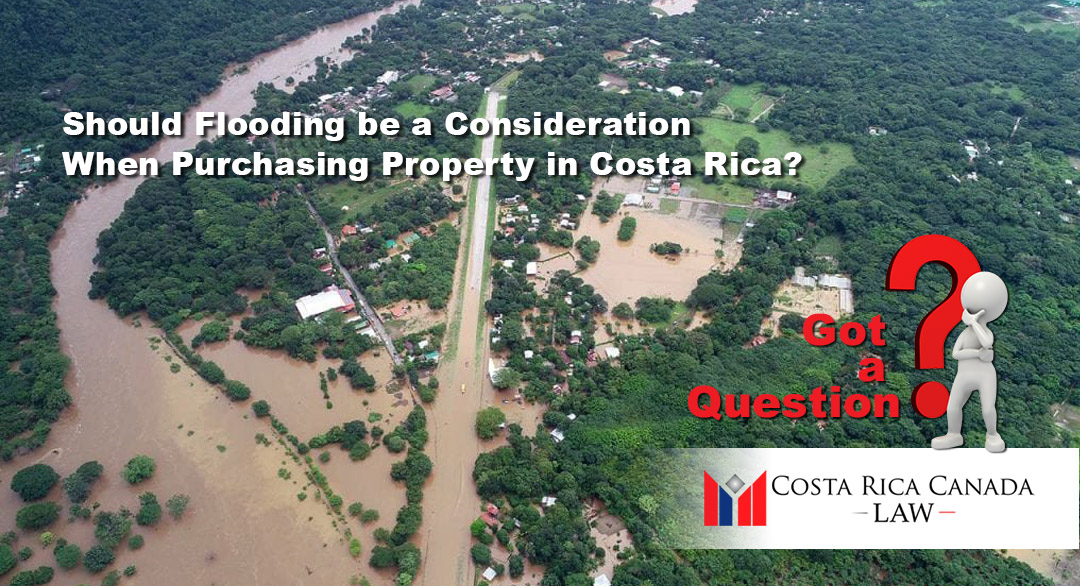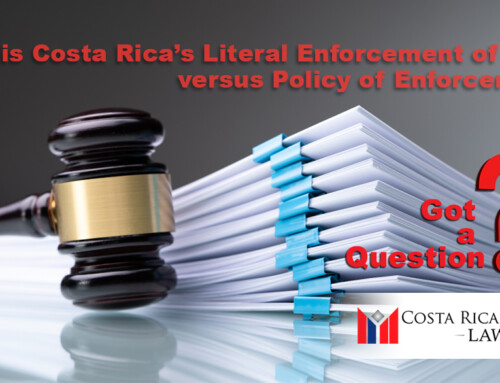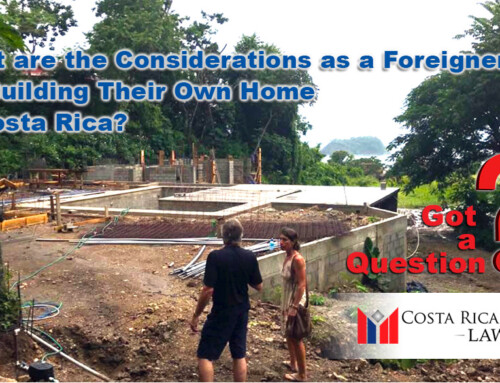This is a question, which may appear to have a very obvious answer, particularly for those living in Costa Rica. However, the manifestation of the inquiry required in Costa Rica is much more extensive than a prospective first time property purchaser may first envision. The majority of properties offered for sale in Costa Rica are offered by Sellers during the “Dry Season”, which, for most of the country, runs from December to May. This period also coincides with the “Tourist High Season”, offering the greatest number of prospective property purchasers being in the country. Properties viewed during this period may have a totally different complexion, than at other times of the year, when tropical rains abound during the “Wet Season” or “Green Season”.
Also, the climate in Costa Rica is affected in a dramatic way with respect to the existence of the El Niño or La Niña Ocean Currents in the Pacific Ocean, occurring adjacent to Costa Rica. The year 2024, saw the effects of the La Niña Ocean Current, which tends to produce much heavier rainfall than when the Country is under the effects of an El Niño Ocean Current. Such was the case in 2024 and instances of flooding were higher, including in many areas that have not had a previous history of flooding. In the year 2024, as there existed the effect of the La Nina Ocean Current on the Country, flooding, even in the driest Province of Guanacaste, and in other parts of the Country, has been extreme, with significant loss of property being experienced. With the effects of “Climate Change”, the prevalence of more intense weather systems passing over the Country appears to be on the increase during the Wet Season.
Sources of Property Flooding
Obviously, many properties present no flooding issues, such as elevated properties, with all adjoining properties sloping away. However, a review of a Property Survey Plan may show an internal watercourse or one located on a property boundary, which should require further investigation. As a general environmental rule, no development of a property may take place within fifteen meters on either side of a watercourse. If a dry creek bed or other watercourse is visible during the Dry Season, on or near a property under consideration, further due diligence is required. A dry creek bed during the Dry Season can become a raging torrent of water during a tropical downpour during the Wet Season and flooding may occur.
Seller Declaration in Purchase and Sale Agreement
Sources of property flooding may not be readily apparent, especially during the Dry Season. Also, annual variations in the climate due to the El Niño and La Niña Ocean Currents may produce a potential for flooding in some years and not others. Rapid regeneration of undergrowth may “mask” an area that has previously been a source of flooding, such as creek or river flood plain areas. When there is any possibility that flooding may be an issue, it would be wise to have a clause included in the Purchase and Sale Agreement for a property, where the Seller declares that the property does not have a history of flooding. Land slippage, particularly on steep slope properties, is also a major factor associated with potential flooding issues to be considered.
Municipal Inquiry
Another source of information regarding potential flooding issues is in the Offices of the Municipality where a property is located. This is a particularly important inquiry to make if the property to be purchased is a building lot, with no existing construction. The existence of a history of flooding can be a bar to having a Building Permit granted in the future.
My Opinion
The majority of you reading this post will be foreigners, who have moved or are considering moving to Costa Rica, from the U.S. or Canada. While flooding does exist in both of those countries, government oversight with respect to clearly defined restrictions and regulation of development in such affected areas exists at a much higher level of enforcement than in Costa Rica. In addition, Municipalities tend to be lax in their cleaning of storm sewers and natural water courses from accumulated garbage and debris in urbanized areas, prior to the commencement of the Wet Season in any given year, which adds to the likelihood of flooding occurring. In Costa Rica, a flooding problem may rightfully be considered to be a “hidden defect” during the Dry Season The general advice that I would give, is to have the issue of flooding “front-and -center” on your list of due diligence items to consider and to not purchase a property with a watercourse, on or adjacent to the property under consideration.






